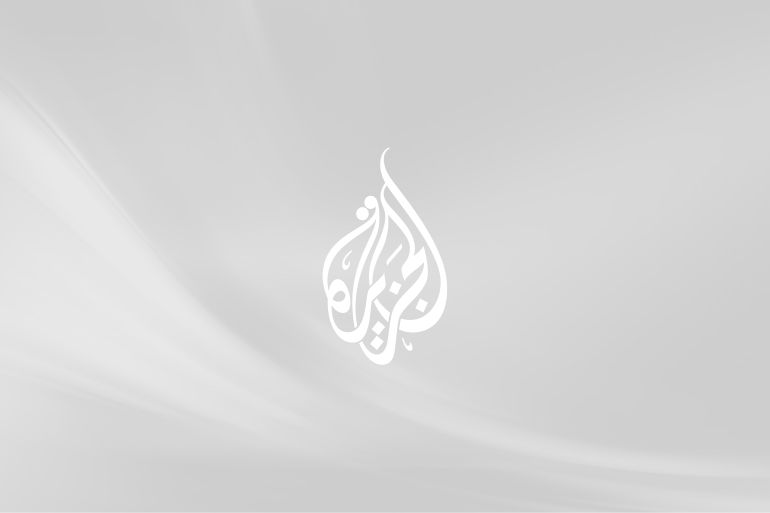Lebanon’s identity crisis
Sectarian tension stirred by the revolt in neighbouring Syria tests the country’s national unity.

“Leave him alone!” I shouted hoping that a female would be able to help calm a crowd of angry men.
They were bothering a colleague in a tense neighbourhood in the northern Lebanese city of Tripoli because they believed he was a supporter of a rival political group.
Why did they think that? He was wearing an orange-coloured watch. Orange is the trademark colour of a Lebanese Christian group allied with the Syrian government.
We were in Bab el-Tebbaneh, a stronghold of a Sunni party opposed to the Syrian authorities.
“I like the colour orange,” my colleague told them. It wasn’t enough to defuse the tension. “My name is Omar and I am from Beirut!”
Those were the magic words because the men – many of them armed with assault rifles pulled back. They felt that he was one of them.
For those not familiar with connotations of Arabic names Omar is a name Sunnis use.
There is a reality that no one can deny any longer. The Sunni-Shia divide in Lebanon is as deep as it was when it first emerged centuries ago. But politics is more at play here.
Many Sunnis oppose the foreign powers that Shia-led Lebanese groups have allied themselves with – Iran and Syria.
This has become a reality but one that may be understandable. Speak to the people of northern Lebanon and you will hear this phrase time and time again: the Sunni community is under attack.
Feeling of marginalisation
Sectarian tensions have always been a part of this country’s history but it was the assassination of Rafik al-Hariri, former prime minister, in 2005 that burst it out into the open.
He was a Sunni leader and many in that community believe the Shia group, Hizbollah, was behind it. It is not only that. Sunnis feel marginalised.
There was a time during Lebanon’s civil war years (1975-1990) when identification cards indicating your religion could get you killed if you were in the wrong neighbourhood.
Lebanese ID’s no longer mention your religion but family names at times speak for themselves.
It has been over two decades since the political and sectarian forces agreed to a peace deal, but not much has changed.
The same men who led militias during the war years hold official positions.
The different sectarian-based groups continue to fight over power.
Foreign powers that relied on local allies to wage a proxy war are still using this fractured nation.
“Why didn’t you hoist the Lebanese flag?” I asked an armed man guarding the funeral of a slain Sunni Muslim leader in Akkar.
It was the flags of the Syrian opposition and the March 14 anti-Syria government alliance that were hanging on every pole, wall and on top of the mosque.
Marwan paused for a moment before telling me: “You are right … But you can’t blame us. We don’t feel loyalty to our country.
“We want to topple this government which is headed by Hezbollah and by extension [Syrian President] Bashar al-Assad,” Marwan told me before he looked away towards Syria, which was visible in the distance.
The religious leader was killed along with his companion by a Lebanese army soldier near a checkpoint in Akkar. He was a member of March 14 alliance.
Divided along sectarian lines
People at the funeral said it was as assassination carried out by a soldier whose loyalty is to groups that support the Assad government. Army sources, however, said a soldier was wounded which means there was an exchange of fire.
The religious leader was known to help Syrian refugees living along Lebanon’s northern border with Syria. Others say his support to Assad’s opponents didn’t just involve humanitarian aid.
Regardless of his role in the Syria uprising, there is a reality in this region. It’s mainly Sunni population is helping to overthrown the Assad government.
“The tensions in Lebanon won’t end until the Syrian regime is toppled because it will mean its Lebanese allies will also be toppled,” Marwan told me.
I am not sure Syria’s Lebanese allies will give up without a fight. Predicting what is next in Lebanon is hard.
But when young men – some wearing masks – fire off their brand new weapons during the cleric’s funeral in the presence of the internal security forces, you know that there is no state.
Other parties are just as much to blame. Hezbollah – whose arms remain a source of tension – runs a state within Lebanon. And there is no feeling of nationalism either.
The religious leader’s funeral was held on Lebanon’s territory but it was the Syria opposition flag that was flying high. Lebanon as a nation doesn’t exist.